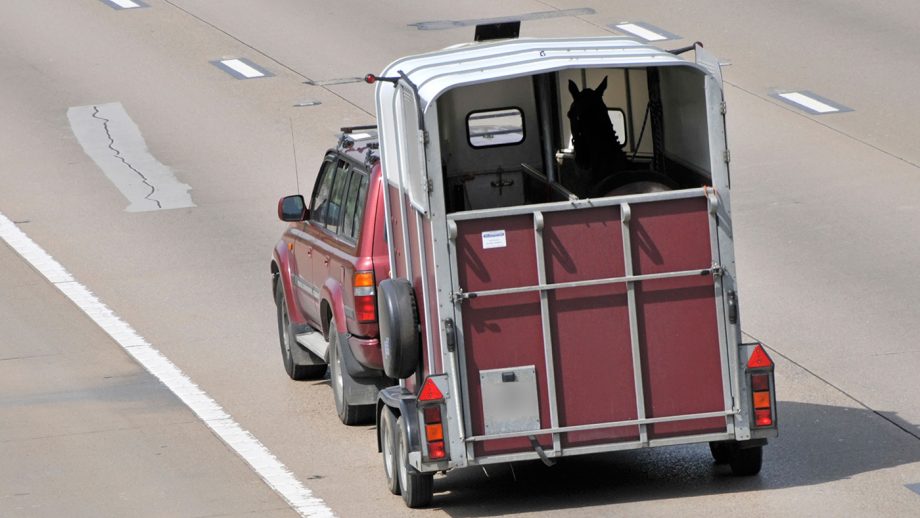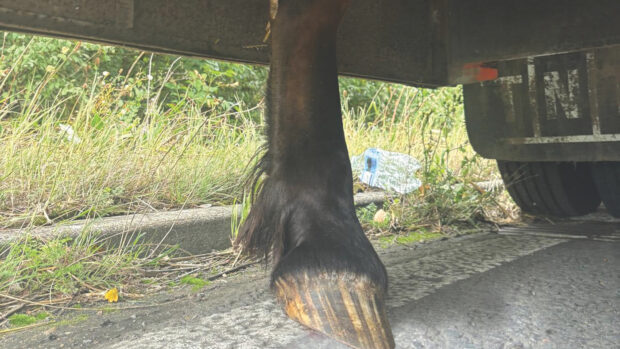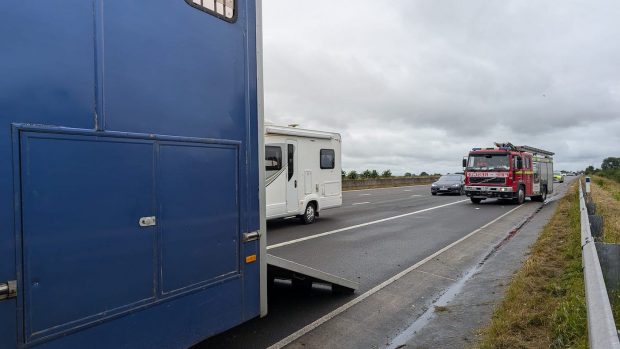Pressure is being placed on the Government to tackle “horse smuggling” and Britain’s “not fit for purpose” equine ID system, and to find a way to ease movement of “high health status” horses “as soon as possible”.
The recommendations come from the Environment, Food and Rural Affairs (EFRA) committee’s report into moving animals across borders post-Brexit.
The report, which has been welcomed by the equestrian industry, stated there are “obvious and ready solutions that could be put in place if there is political will to do so on both sides” for many issues highlighted, including moving high health status horses across borders.
“The introduction of laws and regulations to protect animal welfare is important but ultimately meaningless if they are not enforced,” it added.
In her evidence to the committee, Jan Rogers, director of research and policy at the Horse Trust, said the costs involved of moving horses “are at least double in every case” since Brexit and that significant delays at the Calais border control post include horses waiting between three and seven hours. She also highlighted one occasion where an animal had to wait nine hours.
The EFRA report has urged the Government to work with the EU “as quickly as possible” to formulate a replacement to the Tripartite agreement, which existed before Brexit and enabled easy movement of high health status horses between Ireland, Britain and France.
World Horse Welfare, the RSPCA and the Countryside Alliance raised the concern that some horses nominally being exported for sale in Europe are really being sent to slaughter.
While it is currently legal for horses to be exported for slaughter, although moves are under way to ban this, there have been no declarations for many years. Concerns centre around the conditions in which horses are travelled.
The committee heard that “no one knows” how many horses are being illegally moved across Britain’s borders and that Border Force had no intelligence on horse smuggling, and called on Defra to investigate non-compliant horse movements and quantify the scale and causes.
“This work should take place in collaboration with industry groups like World Horse Welfare who have developed intelligence and expertise on horse smuggling. Once the scale of the issue has been identified, Defra should set out a plan to address it within a year, and no later,” added the report.
EFRA committe moving animals across borders: ‘Equine ID not fit for purpose’
The committee also urged Defra to move to a digital identification system “as a matter of urgency”.
“The current system of equine ID is not fit for purpose. Its outdated and fragmented paper systems enable fraud,” states the report.
“A digital identification system would help prevent horse smuggling and enable the expedited movement of ‘high health status’ horses. The mandatory microchipping of equines facilitates a digital identification system, which we believe is available at the moment.
“The proposals put forward in Defra’s upcoming equine identification consultation should be digital by design and easy to use, except in exceptional circumstances, such as the studbook network which is vital for the support of native, rare and indigenous breeds. It is our understanding that these systems already exist within the industry. The Government should embrace these systems or guarantee interoperability with them.”
It added that Defra should develop a funded action plan to enforce the identification rules, with a consultation published within the next three months and an action plan decided on three months after the consultation’s conclusion.
World Horse Welfare chief executive Roly Owers, who gave evidence to the committee, welcomed the report and said the recommendations would make a “huge positive difference to equine welfare” if implemented.
“Effective enforcement relies on being able to identify horses throughout their lives and to do this, the ID system needs to be digital by design, and traceability systems introduced,” he said.
“This will allow all those involved such as border staff, police, veterinarians and welfare organisations to work together and drive enforcement through an intelligence-led approach.
“The existing equine identification system of paper passports, insufficient collaboration between government bodies and enforcement agencies across the UK and the knock-on difficulties in enforcing the current legislation mean it is all too easy to bypass the system and move horses on false documentation.”
The British Horseracing Authority’s head of public affairs, Ross Hamilton, who also provided evidence, likewise welcomed the report on behalf of the Thoroughbred Industries Brexit Steering Group.
“The implementation of a high health status for the expedited movement of thoroughbreds for racing and breeding purposes, utilising the digital solutions such as the Weatherbys’ E-passport already in place in our industry, is an objective which has support across the British and European thoroughbred sector,” he said.
“It will help support our industry’s clear aim to raise animal welfare and health standards further, improve traceability of thoroughbreds throughout their lives, and help ensure that Britain’s world-leading position in the international industry, generating hundreds of millions of pounds in trade annually for the UK economy, can be boosted.”
You might also be interested in:

Subscribe to Horse & Hound magazine today – and enjoy unlimited website access all year round

Safety and business fears over trailer test scrapping

Ban on live export for slaughter and protection from dog attacks on Government’s agenda
The plans come under the new Animal Welfare (Kept Animals) Bill which had its first reading on Tuesday (8 June)
Horse & Hound magazine, out every Thursday, is packed with all the latest news and reports, as well as interviews, specials, nostalgia, vet and training advice. Find how you can enjoy the magazine delivered to your door every week, plus options to upgrade your subscription to access our online service that brings you breaking news and reports as well as other benefits.





